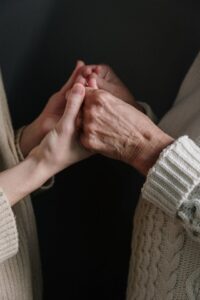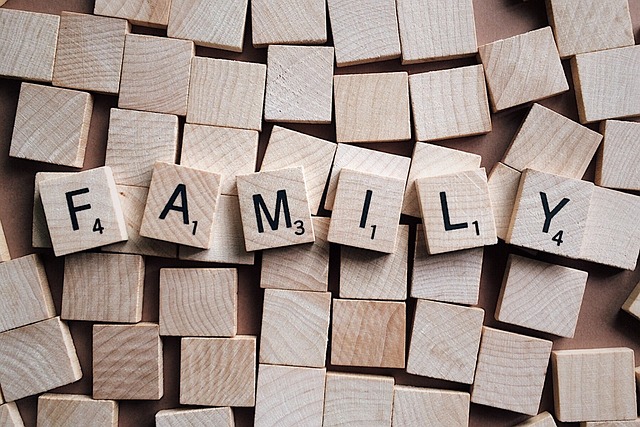The Hidden Heroes Among Us: Celebrating National Family Caregivers Month
In homes across America, an extraordinary story of love, dedication, and sacrifice unfolds every day. These stories belong to family caregivers—parents caring for children with special needs, adult children supporting aging parents, and grandparents stepping in to raise grandchildren. This November, during National Family Caregivers Month, we recognize these unsung heroes who form the backbone of our nation’s care system.

Image by WOKANDAPIX from Pixabay
A Growing Reality Across Generations
The face of family caregiving is changing. Today’s caregivers span multiple generations, from millennials supporting parents with early-onset dementia to baby boomers simultaneously caring for elderly parents and their own children—the so-called “sandwich generation.” More than 53 million Americans now provide unpaid care to family members, contributing an estimated $470 billion worth of care annually—more than all paid home care and Medicaid combined. Notably, 61% of family caregivers are women, and nearly half of all caregivers are under the age of 50.
The Impact of Modern Caregiving
Family caregivers often juggle multiple responsibilities while providing an average of 24 hours of care per week, with 23% providing 41 or more hours of care—equivalent to a full-time job. They manage medications, coordinate medical appointments, handle financial matters, and provide emotional support—all while maintaining their own careers and families.
The Hidden Costs
The dedication comes with significant personal and financial challenges:
- 61% of working caregivers report making workplace accommodations, including cutting hours or taking leaves of absence
- Caregivers spend an average of $7,242 annually on out-of-pocket caring expenses
- 53% of caregivers report a decline in their own health due to caregiving duties
- 70% of caregivers report symptoms of depression or anxiety
- One in four caregivers find it difficult to take care of their own health

Photo by cottonbro studio: https://www.pexels.com
The Multigenerational Connection
What makes family caregiving unique is its ability to strengthen intergenerational bonds. When a teenager helps their grandmother navigate technology, or when an adult daughter shares daily meals with her aging father, these moments create lasting memories and deeper understanding between generations. These relationships often transform both the caregiver and care recipient, fostering empathy and appreciation for life’s different stages.
Common Challenges Faced by Caregivers
Physical and Emotional Strain
- Physical exhaustion from lifting and assisting with mobility
- Chronic stress leading to health issues
- Compassion fatigue and emotional burnout
- Sleep deprivation affecting overall well-being
Financial Pressures
- Reduced work hours or leaving the workforce entirely
- Retirement savings impacts ($304,000 lost on average in wages and benefits)
- Increased household expenses
- Healthcare costs not covered by insurance
Social Impact
- Isolation from friends and social activities
- Strained family relationships
- Limited time for personal interests
- Difficulty maintaining work-life balance
Supporting Our Caregivers
As we celebrate Family Caregivers Month, it’s crucial to recognize that caregivers need care too. Here are ways communities can support family caregivers:
- Offer respite care services to provide temporary relief
- Create flexible workplace policies that accommodate caregiving responsibilities
- Develop support groups and educational resources
- Provide accessible mental health services for caregivers
- Advocate for policies that recognize and support family caregivers

Looking Forward
The future of caregiving will likely see even more families taking on these responsibilities as our population ages—projections show the number of Americans aged 65 and older will double to 95 million by 2060. Technology will play an increasingly important role, with digital health tools and remote monitoring systems supporting caregivers’ efforts. However, the heart of caregiving will always remain the same: family members showing up for each other, day after day.
A Call to Action
This month, let’s commit to supporting the caregivers in our communities. Whether it’s offering to run errands, providing a listening ear, or sharing resources, small actions can make a significant difference in a caregiver’s life. After all, most of us will either be caregivers or need care at some point in our lives—studies show that nearly 70% of Americans will need long-term care at some point after turning 65.
Recognizing and supporting family caregivers strengthens not just individual families but our entire society. Their dedication reminds us that at its core, caregiving is an expression of our shared humanity and the connections that bind generations together.
Remember to “Fall Back”
On Sunday, November 3, 2024, with the exception of the Navajo Nation — Arizona and Hawaii are the only two states in the nation that do not participate in daylight saving time, according to the DOT. The rest of us in the US set our clocks back!
Caregiving will touch most of us in some way at some point in life. Having information about our loved ones to help when that time comes is a godsend. It’s ok to reach out and ask for help, we all have our strengths. Send me an Email or Message if you have any questions. For additional information about my work check out @ The Living Planner or @ The Living Planner.
If you’re up for planning for your life’s administrative side, my book is a resource for you. The Living Planner What to Prepare Now While You Are Living © Check it out HERE.
Let me know if you’d be interested in a Parenting Parents workshop. I’ve been in these shoes and am happy to share what I’ve learned ❣️
This quote is a reminder for us all”What happens is not as important as how you react to what happens.” – Ellen Glasgow
Care for the caregivers❣️ Lynn
#PlanfortheUnplanned #Can’tPredictCanPrepare

